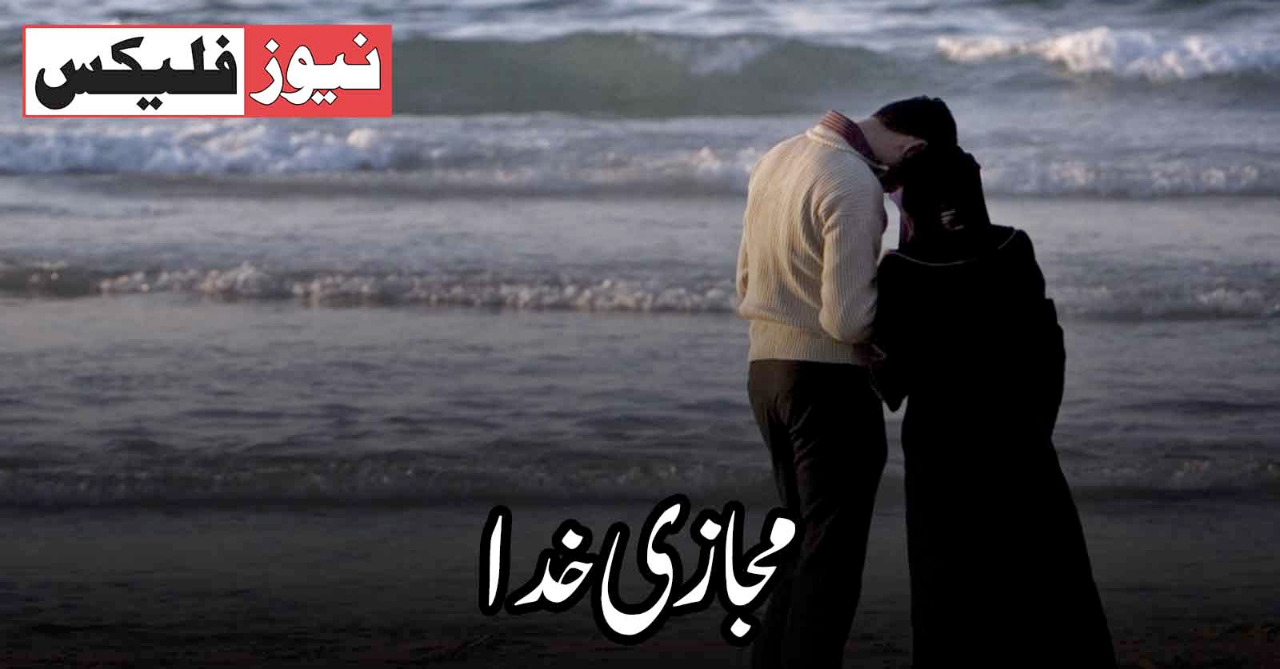
دلہن کے تحائف، مہر اور وراثت میں ملنے والی جائیداد پر خواتین کے قانونی حقوق ہمیشہ سے ہی تنازعات کا مرکز رہے ہیں۔ اگر کوئی عورت اپنی شادی پر کوئی منقولہ اور غیر منقولہ اثاثہ، جیسے سونا یا زیورات، گاڑی، اور جائیداد بطور تحفہ یا جہیز وصول کرتی ہے تو عام طور پر یہ سمجھا جاتا ہے کہ اس کے شوہر کا بھی ان تمام اشیاء میں مناسب حصہ ہے۔
بیداری کے عمومی فقدان کے ساتھ ساتھ بعض رجعتی ثقافتی طریقوں کی وجہ سے، زیادہ تر خواتین اپنے حقوق سے مکمل طور پر بے خبر ہیں جب بات جائیداد کی ملکیت، دلہن کے تحائف کا حق، اور وراثت میں ملنے والی جائیداد کی تقسیم جیسے معاملات کی ہو۔ چونکہ وہ اپنے ان بنیادی حقوق کو نہیں جانتے جو انہیں اسلام نے دیے ہیں اور پاکستان کے آئین نے ان کا تحفظ کیا ہے، اس لیے انہیں یہ بھی نہیں معلوم کہ وہ انہیں قانونی طور پر کیسے استعمال کر سکتے ہیں۔ شاید یہی بنیادی وجہ ہے کہ ملک بھر میں خواتین کی ایک نمایاں فیصد وراثت اور دیگر حاصل کردہ اثاثوں میں اپنے مرد خاندان کے ارکان کے حق میں حصہ لینے سے انکار کر دیتی ہے۔
پاکستان میں خواتین کے جائیداد کے حقوق درج ذیل قوانین کے تحت چلتے ہیں
نمبر 1: شادی شدہ خواتین کا پراپرٹی ایکٹ، 1874
نمبر 2: مسلم میرجز ایکٹ، 1939 کی تحلیل
نمبر 3: مسلم فیملی لاز آرڈیننس، 1961
نمبر 4: مغربی پاکستان مسلم پرسنل لا شریعت ایپلیکیشن ایکٹ، 1962
نمبر 5: خواتین مخالف طرز عمل کی روک تھام ایکٹ، 2011
دلہن کے تحفے یا جہیز پر عورتوں کے حقوق
اگرچہ جہیز اور دلہن کے تحفے (پابندی) ایکٹ 1976 نے جہیز پر ضرورت سے زیادہ اخراجات کو ممنوع قرار دیا ہے، لیکن یہ ملک بھر میں اب بھی ایک بہت بڑا ثقافتی اور سماجی مسئلہ ہے۔ لہٰذا، اس معاملے پر مزید روشنی ڈالنے کے لیے، سپریم کورٹ آف پاکستان نے ایک حالیہ فیصلے میں دلہن کے تحائف پر خواتین کے حقوق کے بارے میں اپنے موقف کا اعادہ کیا ہے۔ جیسا کہ ایک معروف انگریزی اخبار کی رپورٹ کے مطابق، عدالت نے کہا کہ ایک خاتون کو اس کی شادی کے وقت دیئے گئے تحائف اس کی ملکیت ہیں اور یہ اس کی رہیں گی۔ اس کے علاوہ، پاکستان کے شرعی قانون کے مطابق، ان تحائف کو شامل کیا جا سکتا ہے لیکن ان کے حقدار، جو کہ بیوی ہے، سے نہیں لیا جا سکتا۔
جسٹس قاضی فائز عیسیٰ نے 12 صفحات پر مشتمل اپنے فیصلے میں کہا کہ ‘قرآن پاک کے ذریعے بنیادی بیداری لائی گئی تھی اور اس سے پہلے کہ [مسلم] صحیفے میں پہلی بار خواتین کے حقوق کے بارے میں ناواقفیت قائم کی گئی تھی’۔ – متعلقہ معاملہ ‘[شریعت پر روشنی ڈالی گئی ہے] عورت کا اپنی جائیداد کے مالک ہونے اور تصرف کا حق؛ اسے برقرار رکھنے کا حق – شادی سے پہلے اور بعد میں – اس کی آمدنی اور جائیداد؛ اس کی اپنے والد یا شوہر کی اجازت کے بغیر کاروبار کرنے اور جو کچھ وہ کماتا ہے اسے رکھنے اور خرچ کرنے کی اس کی صلاحیت ہے،‘‘ اس نے مزید کہا۔
مزید برآں، دلہن کے تحائف کے بارے میں سپریم کورٹ کے تازہ ترین فیصلے میں کہا گیا ہے کہ مرد اور عورت دونوں کو بالترتیب ان کی کمائی کا فائدہ ہوگا۔ اس میں قرآن پاک کی سورہ النساء کا بھی حوالہ دیا گیا ہے جس میں حکم دیا گیا ہے کہ عورت اپنے والدین اور شوہر سے وراثت کی حقدار ہے۔ یہ بھی سفارش کی گئی کہ شوہر اپنی بیویوں کے لیے وصیت کریں، جیسا کہ اسلام نے عورت کے معاہدوں میں داخل ہونے اور معاہدوں کی گواہی دینے کے حق پر بہت تفصیل سے بحث کی ہے۔
‘عورت کو جائیداد کے حصول یا تصرف کے لیے بھی اجازت کی ضرورت نہیں ہے۔ جو کچھ اسے وراثت میں ملتا ہے وہ اس کا اور اکیلا ہے۔ نہ ہی اس کے شوہر، باپ، بھائی یا بیٹے کو اس کا کوئی حق حاصل ہے: [قرآن کہتا ہے کہ] ‘ایک دوسرے کا مال مت کھاؤ،’ فیصلے کی توثیق کی گئی، یہ نوٹ کرتے ہوئے کہ بعض اوقات قرآن کے احکام پر صحیح طریقے سے عمل نہیں کیا جاتا۔ پسماندہ روایات اور طریقوں کو۔
مہر پر خواتین کے حقوق
جہیز کے علاوہ خواتین کو مہر یا مہر کے بھی مکمل حقوق حاصل ہیں جو اسلامی قوانین کے مطابق شوہر اپنی بیوی کو ادا کرنے کا پابند ہے۔ مہر کی شکل اور معیار، جس کا فیصلہ عام طور پر دولہا اور دلہن کے خاندانوں کے درمیان ہوتا ہے، اس میں رقم، سونا، جائیداد یا کوئی اور سامان شامل ہوسکتا ہے جیسا کہ دونوں فریقین کے درمیان اتفاق ہے۔
قانون کے مطابق مہر بھی بیوی کی ملکیت ہے۔ اگر شوہر اپنی بیوی کو زمین یا مکان دے یا مہر میں حاصل ہونے والی رقم کو جائیداد خریدنے کے لیے استعمال کرے تو وہ اس کی واحد مالک ہوگی۔ مزید برآں، پراپرٹی ٹرانسفر ایکٹ، 1882، اور مسلم فیملی لاز آرڈیننس، 1961 بھی اس بات کو یقینی بناتے ہیں کہ ایک بار ملکیت کا عنوان عورت کے نام منتقل ہو جائے، تو وہ اس کے ساتھ کچھ بھی کر سکتی ہے جیسا کہ وہ چاہے – اس کے ساتھ رقم کا اشتراک کیے بغیر اسے فروخت کرنا۔ ان کے شوہر.
مسلم میرج ایکٹ، 1939 کی تحلیل، طلاق کی صورت میں پاکستان میں خواتین کے جائیداد کے حقوق کا بھی تحفظ کرتا ہے۔ تاہم، یہ بتانا ضروری ہے کہ خلع کے معاملے میں جہاں بیوی نکاح کو ختم کرنے کا مطالبہ کرتی ہے، وہ مہر پر اپنا حق نہیں مانگ سکے گی۔جہاں تک تحفے کے ذریعے جائیداد کی منتقلی کا تعلق ہے، پاکستان میں تحفے میں دی گئی جائیداد پر کوئی ٹیکس نہیں ہے۔ مزید معلومات کے لیے آپ گفٹ ڈیڈ کو رجسٹر کرنے کے طریقہ سے متعلق ہماری گائیڈ سے بھی رجوع کر سکتے ہیں۔
Who Has the Property Rights to Women’s Bridal Gifts?
The legal rights of girls on bridal gifts, dower and inherited property have always been at the center of controversy. If a lady receives any movable and immovable assets, like gold or jewelry, vehicle, and realty as gifts or dowry at her wedding, it’s generally assumed her husband also includes a justifiable share altogether of the things.
Owing to a general lack of awareness further as certain regressive cultural practices, most girls are completely unaware of their rights when it involves matters like realty ownership, right to bridal gifts, and division of inherited property. Since they don’t know their fundamental rights as given to them by Islam and guarded by the Constitution of Pakistan, they even have no idea how they’ll legally exercise them. this is often perhaps the most reason why a big percentage of ladies across the country find themselves disowning their share in inheritance and other acquired assets within the favor of their male members of the family. The property rights of girls in Pakistan are governed by the subsequent laws:
- Married Women’s Property Act, 1874
- Dissolution of Muslim Marriages Act, 1939
- Muslim Family Laws Ordinance, 1961
- West Pakistan Muslim Personal Law Shariat Application Act, 1962
- Prevention of Anti-Women Practices Act, 2011
RIGHTS OF WOMEN ON BRIDAL GIFTS OR DOWRY

RIGHTS OF WOMEN ON BRIDAL GIFTS OR DOWRY
Although the Dowry and Bridal Gifts (restriction) Act 1976 has prohibited an excessive expenditure on dowry, it’s still an enormous cultural and social issue across the country. Therefore, to shed more light on the matter, the Supreme Court of Pakistan has reiterated its stance on the rights of girls on bridal gifts in a very recent ruling.
As reported by a number one English newspaper, the court stated the gifts given to a lady at the time of her marriage are her property and would still remain hers. Also, in line with the Islamic law followed by Pakistan, these gifts will be added to but not alienated from their rightful owner, which is that the wife.
“Radical awakening was led to by the Holy Quran and hitherto before unfamiliar women’s rights were established for the primary time within the [Muslim] scripture,” Justice Qazi Faez Isa said during a 12-page judgment he had authored following the hearing of a property-related matter. “[The Sharia highlights] a woman’s right to possess and eliminate her property; her right to retain – both before and after her marriage – her income and property; her ability to try and do business without permission of her father or husband and keep and spend what she earns,” it added.
Moreover, the most recent Supreme Court judgment on bridal gifts stated that both men and girls shall have the advantage of what they earn respectively. It also cited Surah Al-Nisa of the Holy Quran, which ordains that a lady is entitled to inherit from her parents and husband. it had been also recommended that husbands should make wills to produce for his or their wives, as Islam has discussed the woman’s right to enter into contracts and to witness contracts in great detail.
“A woman also doesn’t need permission to amass or eliminate property; what she inherits is hers and hers alone; neither her husband, father, brother or son has any entitlement to it: [The Quran says] ‘Do not eat up (consume) one another’s property,’” the decision affirmed, noting that sometimes the injunctions of Quran aren’t followed properly because of the backward traditions and practices.
RIGHTS OF WOMEN ON DOWER (MEHR)
In addition to dowry, women even have complete rights to dower or Mehr that a husband is certain to pay to his wife as per Islamic laws. the shape and quality of Mehr, which is typically decided between the families of the bride and groom, could include money, gold, land, or other goods as arranged by both parties.
As per the law, the Mehr is additionally the wife’s property. If a husband gives land or house to his wife, or if she uses the cash received in Mehr to shop for land, she’s going to be its sole owner. Moreover, the Property Transfer Act, 1882, and also the Muslim Family Laws Ordinance, 1961 also make sure that once the title of ownership is transferred to the woman’s name, she will be able to do anything with it as she pleases – including selling it without sharing the number together with her husband.
Dissolution of Muslim Marriages Act, 1939, also protects the property rights of girls in Pakistan just in case of a divorce. However, it’s important to say that within the case of khula, where a wife demands the dissolution of marriage, she is going to not be ready to claim her right to the Mehr.








